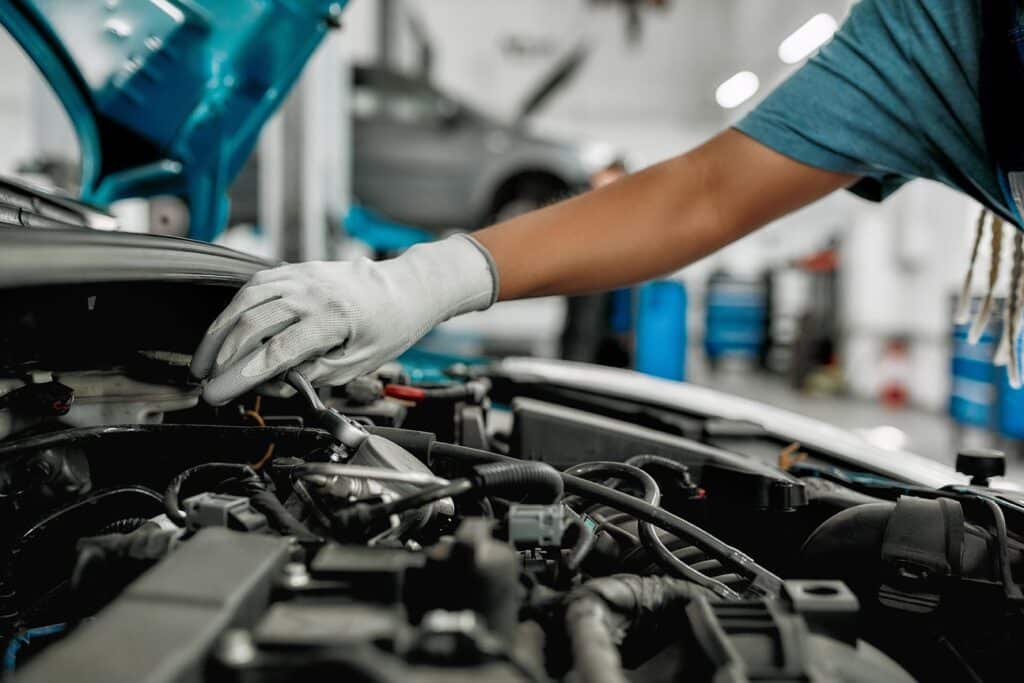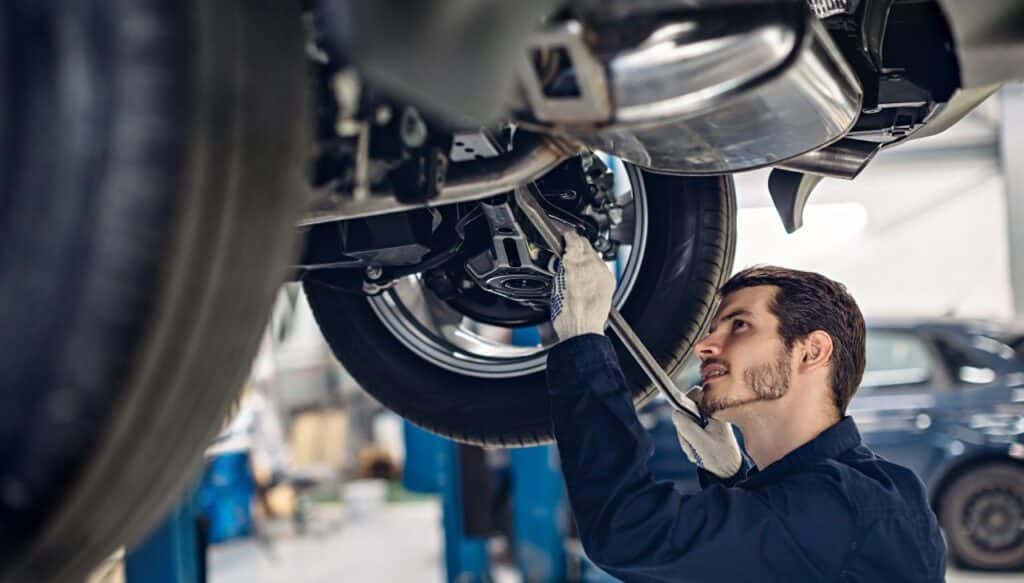Are you looking to get the most out of your car’s engine? If you are, then this blog is for you. Understanding the basics of engine power and its components is crucial to unlock hidden power and upgrade engine performance. In this post, we will cover various factors affecting engine performance, including fuel efficiency and engine size. We will also discuss how to identify if an engine upgrade is necessary and techniques to enhance performance through regular maintenance, high-performance spark plugs, turbochargers, and upgrading the exhaust system. Lastly, we’ll address any risks involved in upgrading your car’s engine performance, such as voiding your warranty. Get ready to unleash the full potential of your vehicle’s engine!
Understanding Engine Performance
Engines are the core of vehicles, providing the necessary power for optimal performance. When we talk about engine performance, we refer to how well an engine functions in terms of both power output and efficiency. Understanding engine performance is vital for maximizing the overall performance of a vehicle.
The power output of an engine determines its ability to generate force and propel the vehicle forward. It directly affects acceleration, top speed, and towing capacity. Additionally, a powerful engine can enhance the overall driving experience, offering a thrilling ride. On the other hand, engine efficiency relates to how effectively fuel is converted into mechanical energy. A more efficient engine not only reduces fuel consumption but also minimizes emissions, making it environmentally friendly.
By understanding engine performance, drivers and automotive enthusiasts can make informed decisions regarding engine upgrades and modifications. They can identify areas where improvements can be made to enhance the engine’s power and efficiency. Whether it’s optimizing air intake, upgrading fuel injectors, or fine-tuning the engine’s electronic control unit (ECU), understanding engine performance allows for targeted enhancements.
In conclusion, understanding engine performance is crucial for unlocking the hidden power within a vehicle. By delving into the intricacies of power output and efficiency, we can optimize the engine’s performance and elevate the overall driving experience. So, let’s explore the fascinating world of engine performance upgrades and harness the full potential of our vehicles.

The Basics of Engine Power and its Components
Engine power is a vital aspect of vehicle performance. It is influenced by various factors such as displacement, compression ratio, and fuel delivery. These factors work together to determine the overall power output of an engine. Additionally, key components of engine power include the cylinders, pistons, valves, and combustion chamber.
Displacement refers to the total volume of all the cylinders in an engine. A larger displacement generally leads to higher engine power. The compression ratio, on the other hand, refers to the ratio of the cylinder’s volume at the bottom of the piston stroke to its volume at the top of the stroke. A higher compression ratio can result in increased power output.
Fuel delivery plays a crucial role in engine power as well. The fuel is injected into the combustion chamber where it mixes with air and undergoes combustion. The efficient delivery of fuel ensures that the engine extracts the maximum energy from the fuel, thereby increasing power output.
The cylinders, pistons, valves, and combustion chamber are the fundamental components responsible for generating power in an engine. The cylinders house the pistons, which move up and down within them, converting the energy generated by combustion into mechanical motion. The valves regulate the flow of air and fuel into the cylinders and the exhaust gases out of them. The combustion chamber is where the air-fuel mixture ignites, resulting in the release of energy.
In conclusion, understanding the basics of engine power and its components is essential for optimizing vehicle performance. Factors such as displacement, compression ratio, and fuel delivery influence engine power, while the cylinders, pistons, valves, and combustion chamber are key components that work together to generate power. By comprehending these aspects, you can unlock the hidden power of your engine and make the most out of your vehicle’s performance.
Factors Affecting Engine Performance
Several factors contribute to the overall performance of an engine. Fuel efficiency and engine size are two significant factors that can have a direct impact on engine performance. The fuel efficiency of an engine determines how effectively it can convert fuel into energy, while the engine size determines its power output capabilities. However, there are other factors that must also be considered.
Air intake plays a crucial role in engine performance. The amount of air that can enter the engine affects the combustion process and power output. An efficient air intake system ensures a proper air-fuel mixture, resulting in optimized engine performance. Additionally, the exhaust flow plays a role in removing combustion byproducts efficiently, allowing the engine to breathe better.
Ignition timing, another important factor, determines when the spark plug ignites the air-fuel mixture in the cylinders. Proper ignition timing ensures maximum power output and efficient fuel consumption. A well-timed ignition ensures that the combustion process happens at the right moment, leading to optimal engine performance.
Understanding these factors is essential as they help identify areas for improvement. By analyzing fuel efficiency, engine size, air intake, exhaust flow, and ignition timing, opportunities to enhance engine performance can be identified. Whether it’s improving the air intake system, optimizing exhaust flow, or adjusting the ignition timing, addressing these factors can unlock hidden power and take engine performance to the next level.
Role of Fuel Efficiency in Engine Performance
Fuel efficiency plays a crucial role in engine performance. It determines how effectively fuel is converted into power, making it an essential factor to consider for optimal engine performance. By improving fuel efficiency, not only can you enhance the overall performance of your engine, but you can also reduce harmful emissions.
There are several factors that impact fuel efficiency. One of the key factors is the fuel injection system. A well-designed fuel injection system ensures that the right amount of fuel is delivered to the engine, maximizing efficiency. Additionally, factors like aerodynamics and weight reduction also contribute to improved fuel efficiency. By reducing air resistance and shedding unnecessary weight, the engine has to work less, resulting in better fuel economy.
Achieving good fuel efficiency not only benefits engine performance but also contributes to a cleaner environment. As engines become more efficient at converting fuel into power, they produce fewer emissions, which is crucial in addressing environmental concerns.
In conclusion, fuel efficiency plays a pivotal role in engine performance. Optimizing fuel efficiency through factors like the fuel injection system, aerodynamics, and weight reduction can lead to enhanced engine performance and reduced emissions. By understanding the importance of fuel efficiency and implementing measures to improve it, you can unlock the hidden power of your engine.
Impact of Engine Size on Performance
When it comes to engine performance, the impact of engine size cannot be overlooked. The engine size, typically measured in liters, directly affects the amount of air and fuel that can be combusted within the engine. Larger engines generally offer more power due to their ability to accommodate a larger volume of air and fuel. However, it’s important to note that this increased power often comes at the expense of fuel efficiency.
Finding the right engine size is crucial as it should be matched to the intended usage and desired performance of the vehicle. For example, if you’re looking for a car that offers excellent acceleration and high top speeds, a larger engine may be the way to go. On the other hand, if fuel efficiency is a top priority for you, a smaller engine may be more suitable. The key is to strike a balance between power and efficiency based on your individual needs.
It’s worth mentioning that engine size is not the sole determinant of performance. Other factors such as air intake, exhaust flow, and ignition timing also play a critical role. These factors, along with engine size, contribute to the overall power output and capabilities of the engine. By understanding how these components work together, you can identify areas for improvement and optimize your engine’s performance.
In conclusion, engine size plays a significant role in determining the performance of a vehicle. While larger engines generally offer more power, they may sacrifice fuel efficiency. It’s important to consider your specific requirements and usage when choosing an engine size. By finding the right balance between power and efficiency, you can unlock the hidden potential of your engine and enjoy an enhanced driving experience.
How to Identify the Need for an Engine Upgrade?
Signs of decreased engine performance, such as reduced power, increased fuel consumption, and unusual engine noise, may indicate the need for an upgrade. Regular maintenance and diagnostics can help identify areas for improvement.
What are the Signs of Decreased Engine Performance?
Signs of decreased engine performance can manifest in various ways. You may notice engine misfires, rough idling, or a decrease in acceleration. Additionally, increased exhaust emissions, oil consumption, and engine overheating could indicate underlying issues. Paying attention to these signs can help prevent further damage and improve overall performance.
Techniques to Upgrade Engine Performance
Regular engine maintenance is crucial for optimizing performance and prolonging engine life. By regularly inspecting and servicing the engine, you can identify potential issues before they become major problems. This includes checking and replacing fluids, filters, and belts, as well as performing regular tune-ups.
One technique to upgrade engine performance is to upgrade to high-performance spark plugs. These spark plugs are designed to improve ignition efficiency, resulting in better combustion and increased power output. By upgrading to these spark plugs, you can enhance fuel efficiency, reduce emissions, and experience smoother acceleration.
Another technique to consider is upgrading the air intake system. By replacing the stock air filter and intake manifold with high-flow alternatives, you can increase the amount of air entering the engine. This allows for improved combustion and increased power output. Additionally, upgrading the exhaust system, such as installing a larger diameter exhaust pipe or a high-performance muffler, can improve engine efficiency by reducing back pressure and increasing exhaust flow.
Engine tuning is another effective technique for upgrading engine performance. By optimizing the engine’s computer settings, you can fine-tune various parameters such as fuel injection timing, air-fuel mixture, and ignition timing. This can result in increased power and torque, better throttle response, and improved overall performance.
In conclusion, there are several techniques available to upgrade engine performance. Regular engine maintenance, upgrading to high-performance spark plugs, improving the air intake and exhaust systems, and engine tuning can all contribute to unlocking hidden power and enhancing your driving experience.
Importance of Regular Engine Maintenance
Regular engine maintenance is paramount in ensuring the smooth and efficient operation of your vehicle’s engine. By regularly performing essential tasks such as oil changes and filter replacements, you can keep your engine running at its best. These routine maintenance procedures help to prevent the build-up of debris and contaminants that can affect engine performance over time.
In addition to keeping your engine clean, regular maintenance also plays a crucial role in early detection and resolution of any potential issues. By closely monitoring your engine’s condition, you can identify and address problems before they escalate and negatively impact performance. This proactive approach to maintenance can save you from costly repairs down the line and keep your engine operating optimally.
Furthermore, when it comes to unlocking the hidden power of your engine, it’s worth considering advanced techniques such as ECU tuning and engine recalibration. These processes involve fine-tuning the engine’s software and hardware components to optimize performance and fuel efficiency. Through precise adjustments, these upgrades can help unleash the full potential of your engine, resulting in improved power output and enhanced driving experience.
In summary, regular engine maintenance is of utmost importance to keep your engine running smoothly and ensure its longevity. From routine tasks like oil changes to more advanced techniques like ECU tuning, every step you take in maintaining your engine contributes to unlocking its hidden power. By staying proactive and addressing issues promptly, you can maximize engine performance and enjoy the benefits of a well-maintained vehicle.
Enhancing Performance with High-Performance Spark Plugs
To enhance the performance of your engine, upgrading to high-performance spark plugs can make a significant difference. These spark plugs provide a more efficient spark, leading to improved combustion. This improved combustion results in increased power output, enhanced throttle response, and improved fuel efficiency.
Choosing the right spark plugs for your engine and its specific application is crucial for achieving optimal performance. Different engines have different requirements, so it’s important to select spark plugs that are compatible with your engine’s specifications. Spark plug characteristics such as heat range, electrode design, and gap size can all impact performance.
High-performance spark plugs are designed to withstand higher temperatures and offer better durability compared to standard spark plugs. They are often made with advanced materials and superior designs to ensure consistent performance and longevity.
By upgrading to high-performance spark plugs, you can unlock hidden power in your engine. The more efficient spark they provide improves the combustion process, resulting in increased horsepower and torque. Additionally, these spark plugs can enhance throttle response, allowing for quicker acceleration and a more responsive driving experience.
Not only do high-performance spark plugs improve power and performance, but they can also contribute to better fuel efficiency. The more efficient combustion they facilitate leads to improved fuel burn, reducing wasted fuel and helping you get more mileage out of every gallon.
In conclusion, enhancing the performance of your engine with high-performance spark plugs is a smart investment. They provide a more efficient spark, leading to improved combustion, increased power output, enhanced throttle response, and improved fuel efficiency. Remember to choose the right spark plugs for your engine and its specific requirements. Unlock the hidden power of your engine with high-performance spark plugs.
The Role of Turbochargers in Boosting Engine Performance
Turbochargers play a crucial role in boosting engine performance by increasing power and enhancing efficiency. By forcing more air into the combustion chamber, turbochargers create a higher pressure and oxygen-rich environment, allowing for better combustion and increased power output.
The operation of a turbocharger is based on the principle of using exhaust gases to spin a turbine. As the exhaust gases pass through the turbine, it spins at high speeds and drives a compressor. The compressor then compresses the incoming air, increasing its density and delivering it to the engine. This compressed air allows for a larger fuel charge, resulting in improved combustion and more power.
One of the key advantages of turbocharging is its ability to enhance overall engine efficiency. By increasing power without significantly increasing displacement, turbochargers enable smaller engines to perform like much larger ones. This leads to better fuel economy and reduced emissions, making turbocharged engines environmentally friendly.
Compared to naturally aspirated engines, turbocharged engines deliver more power and torque. This increase in power translates to higher speeds and quicker acceleration, making turbochargers a popular choice for high-performance vehicles. From compact cars to sports cars, turbocharging has become a common feature in many models, providing an exhilarating driving experience.
In conclusion, turbochargers play a vital role in boosting engine performance by increasing power, enhancing efficiency, and improving overall vehicle performance. By utilizing exhaust gases to spin a turbine and compressing incoming air, turbochargers create a higher pressure and oxygen-rich environment, resulting in better combustion and increased power output. With their ability to deliver more power and torque, turbocharged engines have become synonymous with speed and acceleration in the automotive industry.
How does Upgrading the Exhaust System Improve Performance?
Upgrading the exhaust system can improve engine performance in several ways. It reduces back pressure, allowing for better engine efficiency. A larger diameter exhaust system enhances airflow, resulting in increased power. Additionally, upgraded exhaust systems often produce a more aggressive engine sound. These improvements are typically noticed at higher RPMs, and high-quality materials ensure durability and longevity.

What are the risks involved in upgrading engine performance?
Upgrading engine performance comes with certain risks to consider. Modifying engine components may void the manufacturer’s warranty, and incorrectly installed aftermarket parts can lead to engine damage or poor performance. It’s also important to note that upgrades may not comply with local emissions regulations. Improper tuning or calibration can result in engine knocking or reduced fuel efficiency, while significant horsepower increases may require additional modifications to other engine components.
Can Upgrading Your Engine Void Your Car’s Warranty?
Modifying your engine or its components may void the manufacturer’s warranty. However, some manufacturers offer performance upgrade packages that don’t void the warranty. It’s crucial to check your vehicle’s warranty terms and conditions before making any modifications. Installing aftermarket parts through authorized dealerships may not void the warranty. Keeping records of maintenance and documenting modifications can help prevent warranty disputes.
Conclusion
In conclusion, upgrading your engine performance can significantly enhance your driving experience. Understanding the basics of engine power and its components is crucial before deciding to upgrade. Factors such as fuel efficiency and engine size play a vital role in determining performance. Keep an eye out for signs of decreased engine performance as it may indicate the need for an upgrade. Techniques like regular maintenance, high-performance spark plugs, turbochargers, and exhaust system upgrades can help unlock hidden power. However, it’s important to be aware of the potential risks involved, such as voiding your car’s warranty. Consult with a professional to ensure a safe and effective engine upgrade that suits your needs and preferences.



